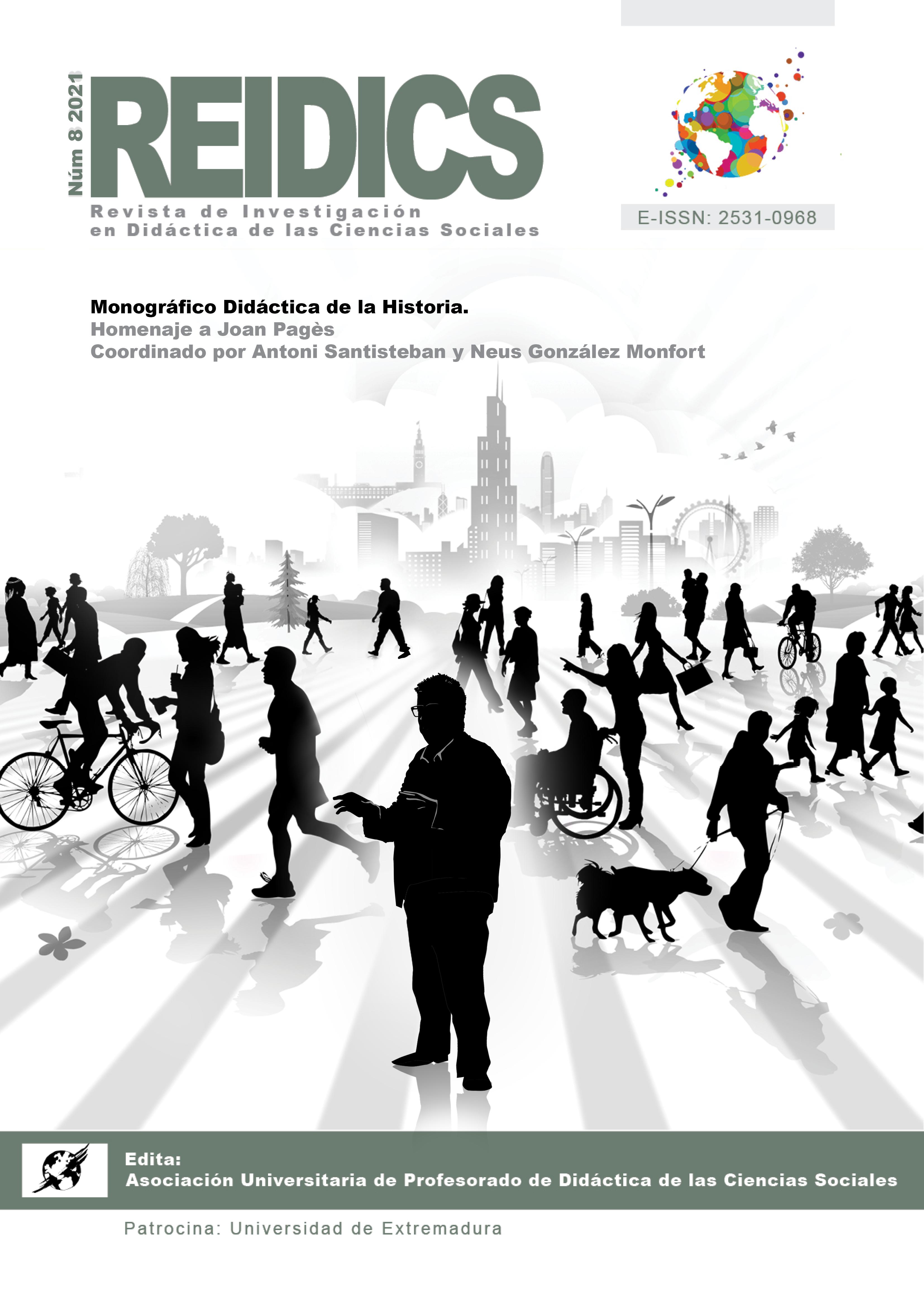In memoriam of the master Joan Pagès: Teaching social sciences for a better world
DOI:
https://doi.org/10.17398/2531-0968.08.8Keywords:
social science teaching, global citizenship education, critical social thinking, temporality, teacher trainingAbstract
In this introduction we would like to review some of the essential themes that characterised the work of our master Joan Pagès. Joan liked the concept of "master", he considered it to be one of the most beautiful and highest-ranking words in existence. In fact, he was, first and foremost, a master and that is how he proudly defined himself. His great concern was always how to improve social teaching and learning, how to educate a more critical, more democratic, more committed citizenry. So we will take a brief look at some of the topics on which he researched and reflected, on which he debated with enthusiasm and to which he made contributions that have helped those of us who believe that the teaching of social sciences can serve to achieve a better world. We recall here some of his most important contributions, but we do not intend to show his work, which covers nearly 400 publications and a large number of topics, from the teaching of historical time, memory and historical awareness, curriculum, teacher training, economic, legal and political education, education for citizenship, participation, work based on social problems or socially live issues, social and civic competence, critical social thinking, among others. We only intend to point out some aspects of his work, as an example of the transcendence of his work. This introduction serves as a preamble to the different authors who have wished to participate in this issue of REIDICS, and who complete this monographic tribute to the master.
Downloads
Published
Issue
Section
License
Aquellos autores/as que tengan publicaciones con esta revista, aceptan los términos siguientes:
- Los autores/as conservarán sus derechos de autoría y garantizarán a la revista el derecho de primera publicación de su obra, el cual estará simultáneamente sujeto a la Licencia de reconocimiento de Creative Commons 4.0 BY-NC-SA que permite a terceros compartir la obra siempre que se indique su autor y su primera publicación en esta revista.
- Los autores/as podrán adoptar otros acuerdos de licencia no exclusiva de distribución de la versión de la obra publicada (p. ej.: depositarla en un archivo telemático institucional o publicarla en un volumen monográfico) siempre que se indique la publicación inicial en esta revista.
- Se permite y recomienda a los autores/as difundir su obra a través de Internet (p. ej.: en archivos telemáticos institucionales o en su página web) antes y durante el proceso de envío, lo cual puede producir intercambios interesantes y aumentar las citas de la obra publicada. (Véase El efecto del acceso abierto).
- Los autores y autoras han respetado la política de autoría de esta revista.




